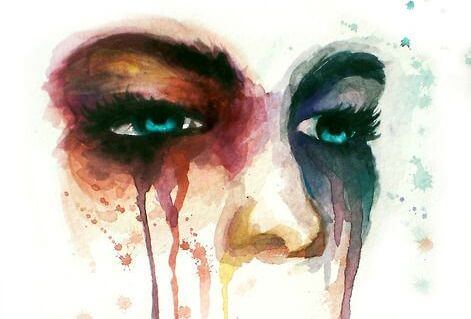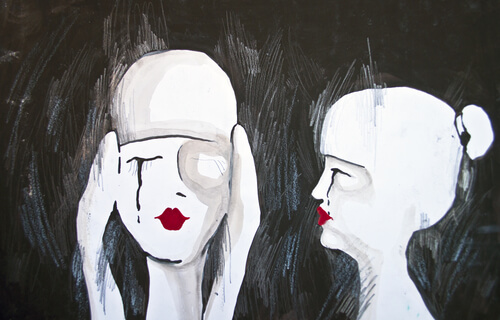Sadness Isn't a Bad Thing, It's Just Frowned Upon

How many times has someone told you not to cry, when that was the only thing you wanted to do? How many times have you pretended to be okay, even though you were broken inside? How many times have people told you not to be sad, when that was exactly how you felt? What is it about sadness that so displeases the people who aren’t suffering from it? Is it so bad to be sad?
Sadness is a basic emotion, so therefore it’s neither good nor bad. Being sad isn’t a bad thing. On the contrary, it’s actually quite healthy, because you’re expressing a feeling that would have otherwise remained bottled up. You feel sad when pain is released, but if the pain isn’t released, the damage only gets worse.
“I will welcome happiness as it enlarges my heart; yet I will endure sadness for it opens my soul.”
-Og Mandino-
Sadness isn’t a bad thing
Avoiding sadness won’t make the thing that caused it disappear, and it won’t make the pain go away, no matter how much people tell you not to be sad, or how much you worry about putting on a happy face. It’s true that a good mood and optimism can help you overcome painful situations, but forcing happiness and hiding your pain is not the solution.

In reality, sadness is only bad when it becomes a habit, when you settle for it as a way to avoid facing your problems. But there’s a time for everything, even sadness. Denying it in yourself or someone else won’t help you release the pain. Instead, the opposite will happen.
Respecting both your own sadness as well as that of other people is the only way to make it fade away, without any pressure or judgment. Feelings are what they are, and nobody has the right to tell you how you have to feel or how you should express your pain.
In fact, not knowing how to manage their sadness naturally causes people to express their pain more dangerously. This shows the importance of emotional intelligence, or the type of dialogue that you maintain with yourself and the kindness with which you treat yourself.
“Laugh, and the world laughs with you; weep, and you weep alone.”
-Ella Wheeler Wilcox-
Why sadness is frowned upon
The problem is that we don’t like to see other people sad. But why? Because we feel helpless, guilty, or responsible? Because it makes us sad and we don’t want to feel that way? Because it reminds us that life isn’t always a walk in the park? Whatever the reason is, we feel uncomfortable when somebody around us is sad.
We also usually feel uncomfortable showing our sadness in public, as if it would hurt others or leave us in a position of weakness. Also, sadness isn’t in style. Social norms dictate that you have to pull yourself together and move on. But these things aren’t mutually exclusive. You can be brave, you can move forward, but you have to wash away the pain first.
“Tears disinfect pain.”
-Ramón Gómez de la Serna-
It’s easier to overcome sadness if you respect it
Everybody has been sad at some point. And we all know from experience that it’s easier to overcome when you let yourself feel it, when you give free rein to whatever it demands of you, whether that involves crying or seeking solitude and feeling the wind blow in your face. The more you try to cover it up, the more effort it will take to get you out of the hole.

When you let sadness flow naturally, you can shed light on your own defense mechanisms. Some people can make jokes, laugh, and be optimistic without crying or being sad. It just depends on the nature of each individual.
There are also people who just need a while to cry and be alone to get it all out, so that later they can take control and start to think more rationally. Others need more time to calm down, and still others need to be in the company of their loved ones. In fact, sadness might be one of the emotions that shows the most difference in behavior when you compare the ways people cope with it.
It’s important to respect the ways each person deals with their difficulties, whatever they might be, especially in the beginning. During those times, even strategies like denial can be useful to soften the blow of sudden, overwhelming pain.
This text is provided for informational purposes only and does not replace consultation with a professional. If in doubt, consult your specialist.








